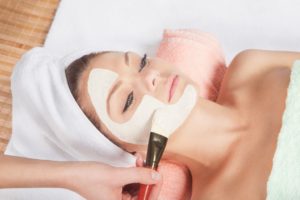
We don’t want to argue about the basics of English homographs because we only care about that second meaning. Sloughing off your skin is basically known as exfoliation. This seems inconceivable, but human skin completely regenerates itself every 27 days. It does this by exfoliating away the outer layer that is comprised of dead skin cells, oil, dirt, and other stuff.
The problem is that as we age, the process of skin cell turnover slows. That’s why we give it a little boost at Dr. Lipton’s with chemical peels. Chemical peels force the outer layer of the skin to peel, revealing younger, healthier skin beneath. We use chemical peels to address a variety of skin problems.
What skin problems can be remedied with a chemical peel?
Chemical peels do not address deep facial lines and they cannot tighten loose, sagging skin. But they are excellent for these skin conditions:
- Sun damage
- Fine lines and wrinkles
- Texture issues
- Pigmentation problems
- Age spots
- Acne and acne scars
- Freckles
- Scaly patches
We don’t go deep
Dr. Lipton offers mainly light and moderate chemical peels. We usually only perform deep peels at the patient’s request.
Light peels are also known as “superficial peels.” They exfoliate the outermost layer of the epidermis, removing dead and damaged skin cells and reenergizing the skin’s glow.
We use light peels for dry skin, fine wrinkles, and to improve acne. We usually use naturally derived alphahydroxy acids for these peels: glycolic acid (derived from sugar cane, grapes, or sugar beets), lactic acid (derived from sour milk), or salicylic acid (derived from plants).
Medium peels penetrate more deeply, reaching down into the dermis layer, the skin’s second layer. Moderate peels are used to treat acne scars, deeper wrinkles, and uneven pigmentation. The peeling agent is trichloroacetic acid.
Light peels don’t require really any recovery time. Medium peels will require some recovery time, as they leave the skin red and stinging. There will be some crusting, and the redness can linger for up to a few weeks.
Schedule a Consultation
Interested in giving your skin’s exfoliation a little help? Call Dr. Lipton at (972) 420-0023 and ask about our chemical peels.

